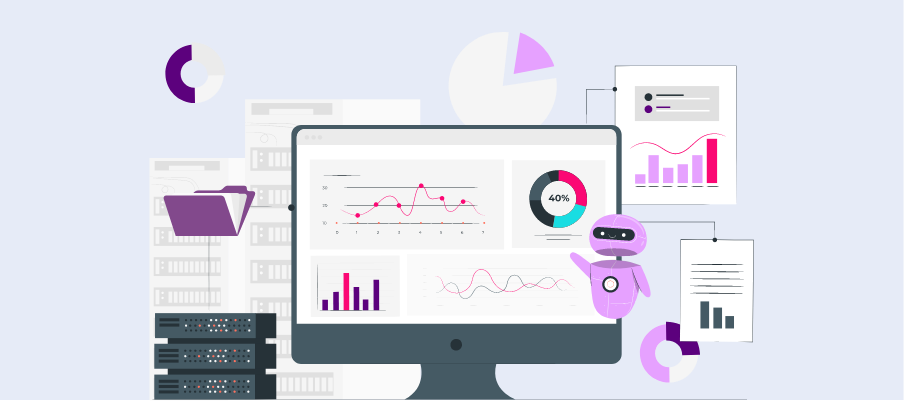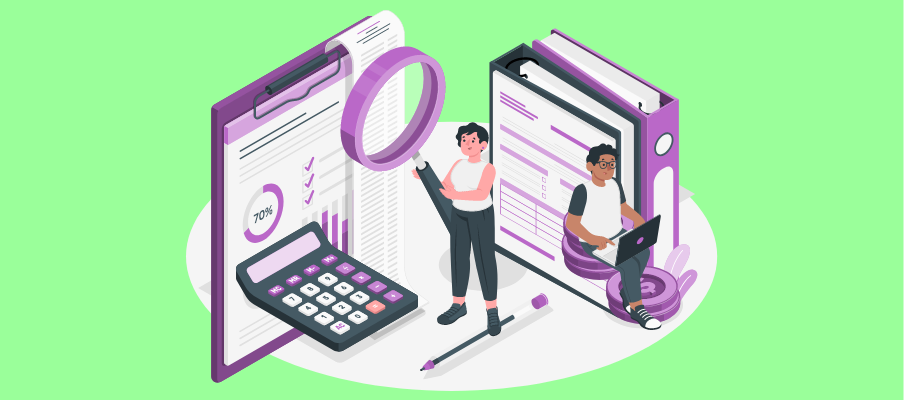Traditional bookkeeping often involves manually entering data into spreadsheets or ledgers, which is not only time-consuming but also prone to errors. This manual process can lead to discrepancies and make it difficult to maintain accurate financial records.
Automatted bookkeeping for small and medium businesses

In today’s digital world, using technology to simplify your finances isn’t just a nice-to-have—it’s a must if you want to stay ahead. Gone are the days of manual data entry and piles of paperwork. Now, we have smart tools that make bookkeeping faster and easier.
In this blog, we’ll explore the world of automated bookkeeping, covering the benefits and strategies that can completely change how you handle your finances. Whether you’re a small business owner or just starting out, it’s time to see how automated bookkeeping can help you take control of your financial future. Let’s dive in!
The Challenges of Traditional Bookkeeping
Traditional bookkeeping methods have long been known for their time-consuming nature and inherent challenges. Here are some of the common hurdles faced by those who rely on traditional bookkeeping practices:
- Manual Data Entry
- Piles of Paperwork
Keeping track of physical receipts, invoices, and other documents can quickly become overwhelming. Storing and organizing paper-based records can take up valuable space and make it challenging to access the information when needed.
- Piles of Paperwork
Keeping track of physical receipts, invoices, and other documents can quickly become overwhelming. Storing and organizing paper-based records can take up valuable space and make it challenging to access the information when needed.
- Limited Accessibility
With traditional bookkeeping, accessing financial information can be restricted to a designated physical location, making it difficult to stay updated on the financial health of your business while on the go.
- Lack of Real-time Insights
Traditional bookkeeping practices often provide financial data with a significant time lag. This delay in accessing up-to-date information can hinder decision-making and prevent timely adjustments to financial strategies.
- Difficulty in Collaboration
Collaboration among team members or with external accountants can be challenging when relying on physical documents or passing files back and forth. This can lead to communication gaps, delays, and potential errors.
Recognizing and addressing these challenges is crucial for streamlining your financial processes and embracing the benefits that automated bookkeeping solutions can offer. By transitioning to automated systems, you can overcome these obstacles, save time, and gain valuable insights into your financial data.
How Automated Bookkeeping Works?
Automated bookkeeping revolutionizes the way businesses manage their financial records by leveraging advanced technology and smart algorithms. Here's a breakdown of how automated bookkeeping works:
- Seamless Data Capture
Automated bookkeeping solutions streamline data collection by integrating with various sources such as bank accounts, credit cards, and financial software. This enables real-time syncing of financial transactions, eliminating the need for manual data entry.
- Intelligent Categorization
The automated software intelligently categorizes transactions based on predefined rules and machine learning capabilities. This reduces human error, ensures accuracy, and saves time that would otherwise be spent on manual categorization.
- Effortless Bank Reconciliation
Automated bookkeeping compares financial data from different sources, such as bank statements and accounting records, to ensure accurate bank reconciliation. This process is automated, making it faster, more efficient, and less prone to errors.
- Real-time Reporting
With automated bookkeeping, you can access real-time financial reports and insights at the click of a button. This empowers you to make data-driven decisions, monitor cash flow, track expenses, and assess the financial health of your business anytime, anywhere.
- Enhanced Collaboration
Automated bookkeeping platforms facilitate seamless collaboration among team members and external accountants. Multiple users can access and work on the same set of data simultaneously, ensuring transparency, efficiency, and effective communication.
By embracing automated bookkeeping solutions, you can streamline your financial processes, save time, reduce errors, and gain valuable insights into your business's financial performance. It's time to unlock the potential of technology and take your bookkeeping to the next level!
Benefits of Automated Bookkeeping for SMBs
Automated bookkeeping offers a multitude of benefits for small and medium-sized businesses (SMBs), revolutionizing the way financial tasks are managed. Here are some key advantages for the small business bookkeeping owners.
- Time and Cost Savings:
By automating repetitive manual tasks, SMBs can save significant time and resources. This allows business owners and staff to focus on strategic initiatives, customer service, and core business operations.
- Increased Accuracy:
Automated bookkeeping minimizes the risk of human error that often accompanies manual data entry. This ensures more accurate financial records, reducing the likelihood of costly mistakes and potential compliance issues.
- Enhanced Efficiency:
With automated bookkeeping, financial processes are streamlined, and tasks can be completed faster and more efficiently. This enables businesses to keep up with the pace of their operations and meet deadlines without delays.
- Access to Real-time Data:
Real-time financial data allows SMB owners to make informed decisions quickly. Financial reports and insights are readily available, enabling you to identify potential issues, track expenses, monitor cash flow, and make timely adjustments.
- Ease of Collaboration:
Automated bookkeeping solutions make it easy to collaborate with team members and external accountants. This promotes effective communication, efficient workflows, and improved overall collaboration.
With automated bookkeeping, you can save time, cut down on errors, and unlock valuable insights to fuel your business growth. Say goodbye to tedious traditional bookkeeping and hello to a smarter, faster way of working.
From streamlining processes and boosting accuracy to providing real-time insights, automated bookkeeping is a game-changer for businesses of all sizes. It's time to take the leap and embrace the future of financial management!
Considerations for Choosing Automated Bookkeeping Solutions
When selecting an automated bookkeeping solution for your business, it's important to keep several factors in mind to ensure you find the right fit. Here are some key considerations to guide your decision-making process:
- Scalability:
Look for a solution that can grow with your business. Consider whether the software can accommodate an expanding customer base, increasing transactions, and evolving financial needs.
- Integration:
Assess how well the bookkeeping solution integrates with your existing software and tools. Seamless integration with other business systems, such as payment processors or inventory management, can streamline workflows and improve efficiency.
- Security and Compliance:
Ensure that the automated bookkeeping software adheres to robust security measures to protect your financial data. Look for compliance with industry standards and regulations to ensure your business remains in good standing.
- User-Friendliness:
Choose a user-friendly solution that is intuitive and easy to navigate. A clean interface and straightforward features will allow you and your team to quickly adapt to and utilize the software effectively.
- Customer Support:
Evaluate the level of customer support provided by the bookkeeping solution provider. Responsive and knowledgeable support can be invaluable when you encounter questions or technical issues.
- Cost and Value:
Consider the pricing structure of the automated bookkeeping solution and assess its value in relation to the features and benefits it offers. Look for a solution that strikes the right balance between affordability and functionality.
By carefully considering these factors, you can make an informed decision and select an automated bookkeeping solution that aligns with your business needs, streamlines financial management, and sets you up for success.




